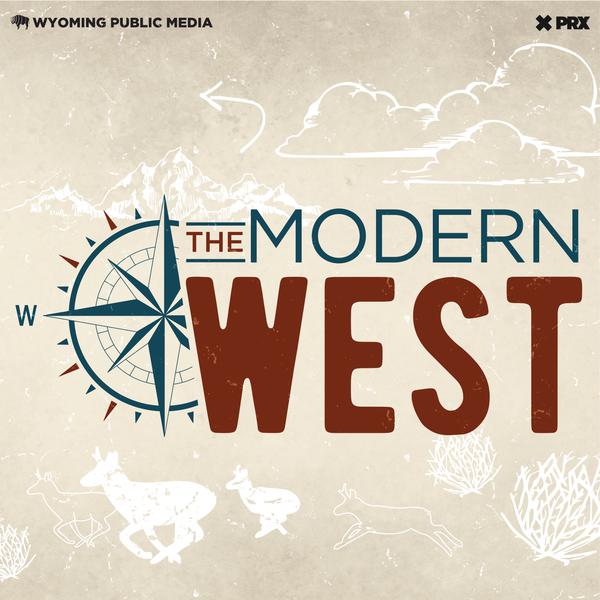
The Modern West
Wyoming Public Media
Exploring the evolving identity of the American West
- 45 minutes 47 secondsAbide By The Land
Celeste and Gary Havener seem to have a perfect homesteading story: the horses, the garden, the honeybees, an amazing mountain view from every window. But theirs is actually a cautionary tale of enduring cancer, COVID and multiple forest fires. At 70, they almost gave up the life. But then they realized they were surrounded by support.
18 February 2026, 7:00 am - 46 minutes 20 secondsThe Flats
We talk with Pulitzer finalist Ted Conover about his book Cheap Land, Colorado: Off Gridders On America’s Edge. Ted bought land in an area outside of Alamosa where he and his neighbors lived off grid with few social safety nets. His take away? It’s a difficult life with incredible views and intense poverty. But you can find lifelong friends and experience a special sense of liberation.
4 February 2026, 7:00 am - 35 minutes 31 secondsCharismatic People
Paul Menjares moved to Frisco, Colorado to live the good life as a musician. But when his landlords kept canceling his leases to turn his apartments into short term rentals, he made a crazy decision. He moved into his car. That was three years ago. Now he’s the manager of a program helping other people do the same thing.
21 January 2026, 7:00 am - 27 minutes 57 secondsMany Hands Make Light Work
When a U.S. Forest Service worker gets fired by DOGE, she’s left scrambling to find a place to live while she finishes building her straw bale house. Luckily, she has lots of friends who not only let her couchsurf, but help with the house raising. It’s an old fashioned approach to affordable housing that’s catching on.
7 January 2026, 7:00 am - 1 minute 36 secondsCheap Dirt: Holiday Pause Update
Howdy Cheap Dirt fans! We will be taking a pause this holiday and resuming on January 7th with a new episode.
24 December 2025, 7:00 am - 32 minutes 45 secondsThe Teeny Tiny House
People in the American West love tiny houses. But, come to find out, per square foot they cost almost 40% more than a regular house. Eric and Erica found a way to get one on the cheap – by winning one in an auction! But are tiny houses really an affordable housing solution, when you try to scale up?
10 December 2025, 7:00 am - 23 minutes 21 secondsEmbrace the Suck
We usually think of full time RVers as retirees. But these days, over half are Millennials and Gen Zers. And way more people are adopting the RV life. Including a house builder who doesn’t have a house of his own. Instead he lives in his RV on the edge of Wyoming’s Big Hollow. He says, off gridding isn’t for the faint of heart.
26 November 2025, 7:00 am - 27 minutes 34 secondsThe American Spirit
We journey into the Red Desert of southwest Wyoming to visit a trona mine worker building his dream cabin off grid for the two small children he’s raising alone. He had to buy extra solar panels for his daughter’s medical equipment and the cabin includes an apartment where she can live with him when she grows up. He says it’s all part of his American dream.
12 November 2025, 7:00 am - 34 minutes 47 secondsThe Reluctant Pioneers
You’ve probably seen viral videos on social media about how quaint it is to live an off-grid life. But these videos belie something more problematic going on beneath the surface. An affordable housing crisis that’s affecting the working and middle class more all the time. Eight of the ten states with the least affordable housing are in the American West. And that’s causing lots of resilient westerners to get creative about their living situations. Including Host Melodie Edwards who shares her own story of living off grid in a canvas dome in a no man’s land in northern Arizona.
29 October 2025, 6:00 am - 3 minutes 27 secondsCheap Dirt: The TrailerCheap Dirt: The Trailer15 October 2025, 6:00 am
- 23 minutes 49 secondsA Ghost Paper(ing) Update: Part II
Two conversations about Wyoming's news ecosystem: one with Cali O'Hare, the editor of the Pinedale Roundup and a roundtable discussion with Solution Journalism's Melissa Cassutt and WyoFile's Rod Miller.
1 October 2025, 6:00 am - More Episodes? Get the App